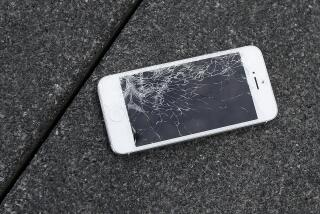Who Pays for Mistaken Repair?
- Share via
As cars become more complex, the job of diagnosing mechanical problems is growing into a major nightmare for motorists. Even competent and honest mechanics can make a mistake in diagnosing what is causing a suspension noise, an engine stall or an overheating condition, among many other problems.
In a sense, a faulty diagnosis is even worse than a bad repair, since the motorist is left without knowing what is causing the problem in his or her car. As cars become more sophisticated, automobile manufacturers have attempted to help mechanics by building in computerized diagnostic systems that self-test various systems in the car.
But these computer systems are often beyond the comprehension of most neighborhood mechanics. And as a car ages, primary or secondary owners become more reluctant to pay the high premiums charged by dealership garages.
All too often, garages engage in trial and error to find a problem. If the car is stalling, they will perform a tuneup first, regardless of whether the car has been tuned up recently. Then, it’s on to exhaust gas recirculation valves, fuel injectors, distributor wires, coils and on and on until they find the problem. This is clearly an unacceptable expense.
What can a motorist fairly expect if he or she takes a car into a garage and a repair is performed which does not solve the problem? It is a gray area, far more difficult to handle than a simple faulty repair.
Even though most states have consumer protection laws that are supposed to safeguard motorists from dishonest mechanics, no government can legislate competence. In California, for example, state laws do not specifically say that a motorist is entitled to a refund if a faulty diagnosis leads to an unnecessary repair.
So all too often, the motorist is left to his own devices.
One school of thought holds that the mechanic is supposed to be the expert and should back his diagnosis. If a repair does not solve a problem, then the garage should provide a refund or credit for the subsequent correct repair.
But trying to jawbone a refund from a garage is a tough task. Many mechanics will insist that what they repaired was broken.
The other school of thought is that mechanics, like doctors, rocket scientists and journalists, sometimes make mistakes. Is it really fair to expect a mechanic to give up part of his day’s pay for an honest mistake?
The issue revolves around what is reasonable, based on how faulty the diagnosis was and whether the mechanic should have known better. Experts in the area of dispute resolution argue that in most cases, a mechanic should make an adjustment if a repair was based on a faulty diagnosis.
“Is the customer responsible for paying for an honest mistake? No,” argues David Taylor, a program manager for California Bureau of Automotive Repair. “The mechanic is the expert.”
Clair Villano, chairman of Automotive Service Excellence, a national organization that certifies mechanics, said dispute arbitration boards often will back the motorist if a diagnosis is incorrect.
Rather than go to arbitration, many mechanics will try to find some middle ground and bear at least some of the cost for the mistake. Motorists hold a strong hand if they are regular customers of the garage, since the mechanic will see a concession as an investment in keeping the customer’s future business. One way to help avoid such disputes is for consumers to refrain from making their own diagnosis. If the repair doesn’t solve the problem, then the mechanic cannot argue that he followed the motorists instructions.






